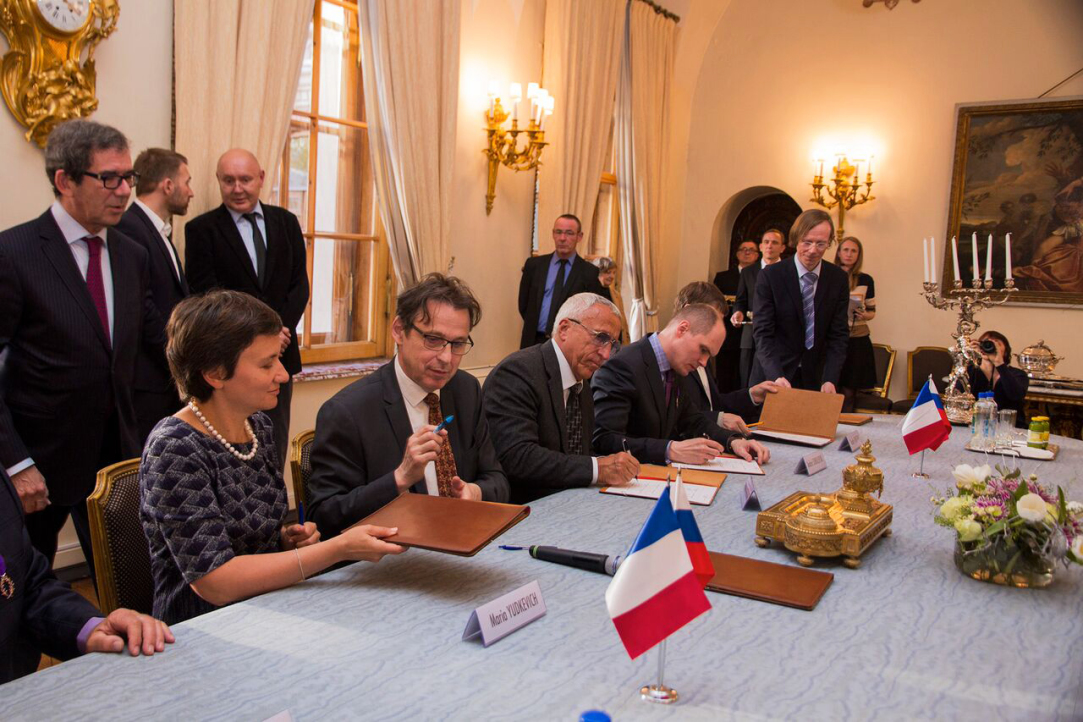HSE Helps Launch Poncelet Interdisciplinary Scientific Centre

On May 22, Russian and French scientists met in Moscow to sign an agreement to create the French-Russian Interdisciplinary Scientific Centre J.-V. Poncelet (ISCP), which the Higher School of Economics helped set up.
The new establishment is being created as a ‘centre of attraction’ for the development of interdisciplinary projects in the fields of mathematics, physics, and informatics. In addition, the centre helps strengthen international scientific collaboration and foster joint scientific achievements in various practical areas.
ISCP’s French cofounder is the Centre National de la Recherche Scientifique (CNRS), while support in Russia came from the Skolkovo Institute of Science and Technology (Skoltech), Problem Peredachi Informatsii Institut (IPPI RAN), National Research University Higher School of Economics (HSE), Steklov Institute of Mathematics, and the Independent University of Moscow. The new centre, like its predecessor, the Poncelet Laboratory, will be based at the Independent University of Moscow.
‘The active environment of the Poncelet Laboratory, which has now been transformed into the Poncelet Interdisciplinary Scientific Centre, has not been interrupted for a single day. The Poncelet Centre teams up with the HSE Faculty of Mathematics to hold a weekly seminar, and it also hosts international colleagues and co-organises academic conferences. And mathematics is not the only area in which cooperation takes place. Now that the agreement has been signed, we are not beginning our collaboration, but developing it and trying to take it to a new level,’ comments Vladlen Timorin, Dean of the Faculty of Mathematics.
The Poncelet Centre will focus specifically on a wide variety of activities: interdisciplinary research, scientific exploration in the field of theoretical and mathematical physics, the development of joint projects in bioinformatics, supporting scientists from Russia’s regional universities, forming strong bonds with academic centres from the country’s regions, and fostering academic achievements in various practical areas.
ISCP will be effective and in demand when it comes to establishing new and long-lasting international connections thanks to the format of the overall platform used to foster scientific exchange among the organisations that cofounded the centre. This is also aided by the fact that researchers from different scientific centres in Russia and France will be involved in joint projects. The cofounders’ organisational contributions will also set the foundation for academic conferences and seminars, international education programmes, and academic exchanges for teams of French and Russian researchers.
‘We are hoping the Poncelet Centre proves to be a win-win game and a shining example of international scientific cooperation,’ says ISCP Director Sergei Nechaev.

